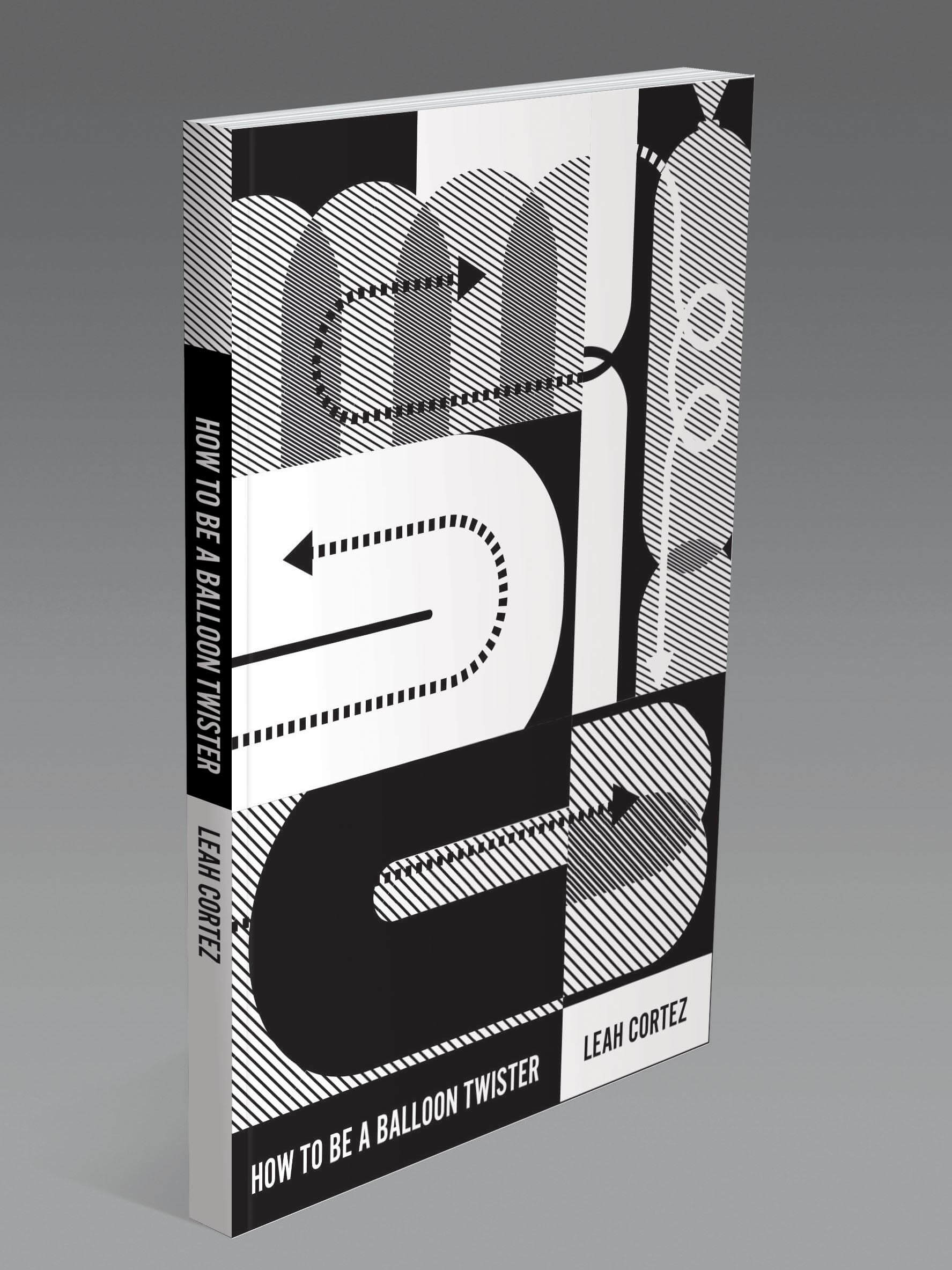
Elements & Principles
Reimagining design fundamentals through cultural lens and contemporary practice
Concept
This book cover for "How to Be a Balloon Twister" demonstrates design fundamentals by embodying the very principles it teaches. The goal was to create an instructional cover that communicates visual hierarchy, geometric form, and directional flow while maintaining a playful, accessible tone.
Design Approach
Inflated, translucent geometric shapes mimic balloon forms, creating depth and dimensionality. Directional arrows guide the viewer's eye through the composition, demonstrating visual flow and implied movement. Typography is cropped and scaled to interact with the geometric elements, creating dynamic relationships between text and image. The black-and-white palette emphasizes contrast and legibility while allowing the forms to maintain visual hierarchy. The composition balances instructional clarity with playful experimentation.
Result
The cover successfully functions as both an instructional artifact and a demonstration of the design principles it contains. The design shows how abstract structure can feel light and accessible, making complex concepts approachable through visual language.